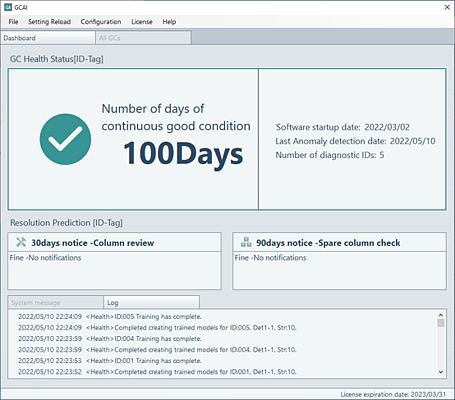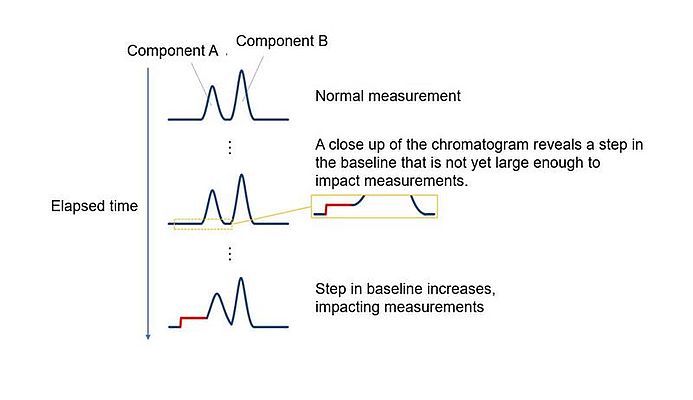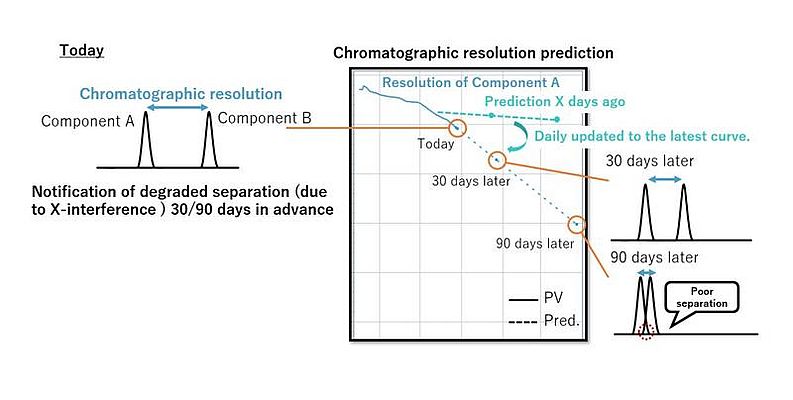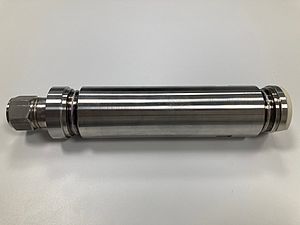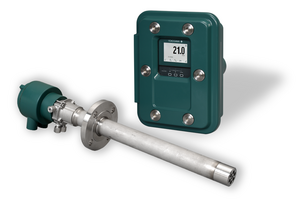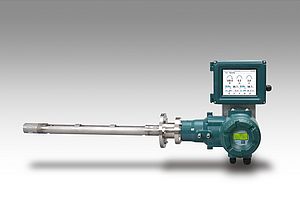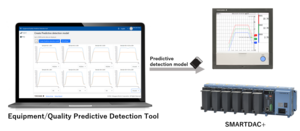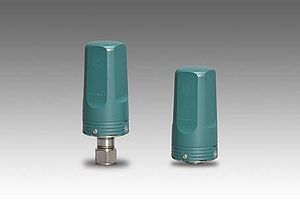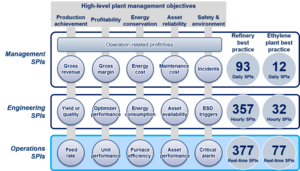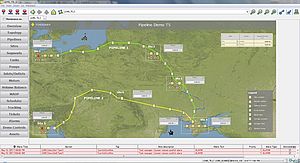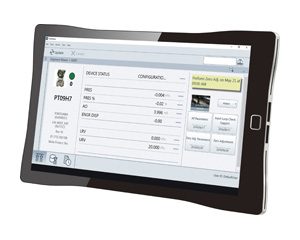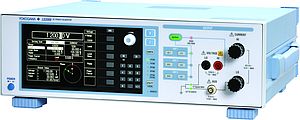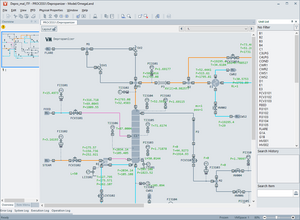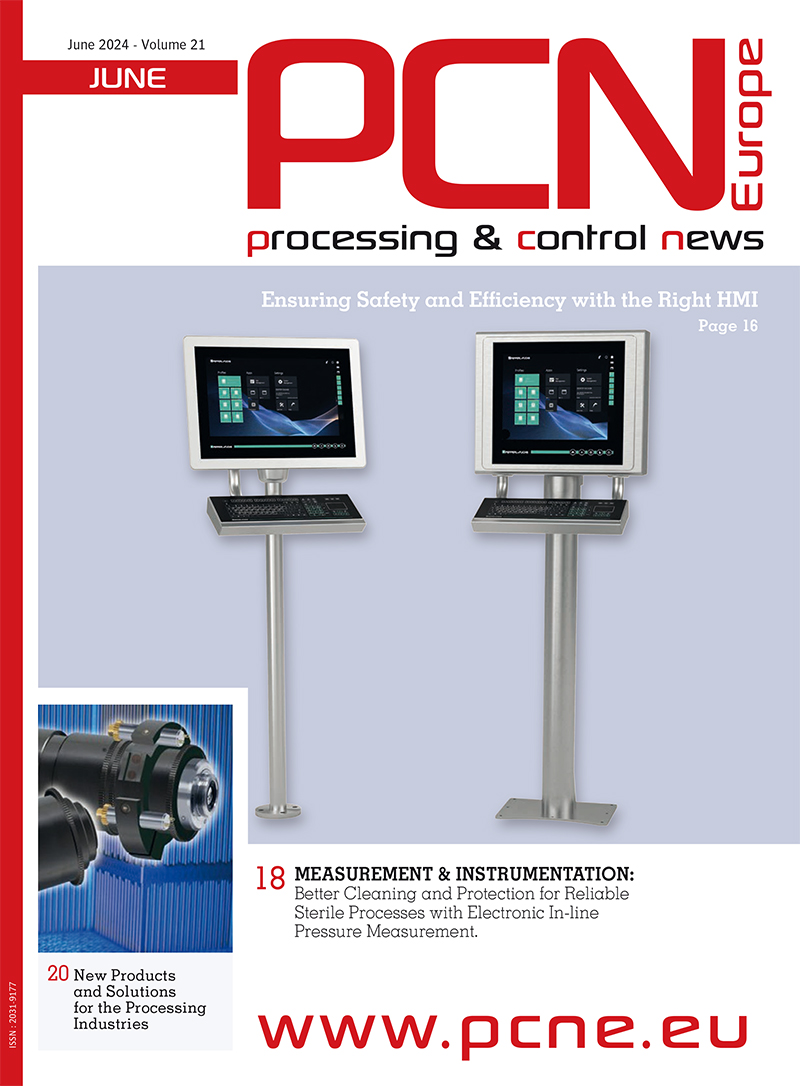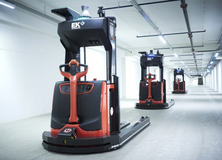Yokogawa Electric announced the release of a gas chromatograph AI (Aritficial Intelligence) maintenance support tool (hereafter “GCAI tool”) that increases maintenance efficiency for the GC8000 process gas chromatograph, a product in the OpreX™ Analyzer family. This software is capable of detecting slight changes in measurement data that are an indication of an impending instrument failure before this can begin to have an impact on measurements. By allowing maintenance to be performed in a timely manner, downtime is reduced.
Development Background
At production sites, the stable operation of instruments and other equipment is key to product quality. And while proper maintenance is required to ensure stable operation, production sites must also deal with issues such as shortages of highly experienced personnel and the need to streamline operations.
The Yokogawa GC8000 gas chromatograph is an instrument that plays an important quality control role at production sites by measuring the composition of the individual components in mixes of gases and volatile liquids. Dozens of GC8000s are often used at large oil and petrochemical plants, and the largest facilities may have several hundred units.
Gas chromatographs and their sample handling systems contain components such as filters, valves, pressure regulator, columns, and detectors that require regular maintenance. The degree of wear of these components differs greatly depending on the usage environment. In addition, the specifications and maintenance timing for each gas chromatograph will differ depending on what is being measured and the process. Abnormalities have conventionally been prevented by having highly experienced operators look at the measurement data to identify the best maintenance timing or simply setting maintenance schedules with plenty of leeway. When losses from sudden downtime are relatively low, the devices have even been used until they begin to deteriorate and produce obvious variances in the measurement values.
In light of these needs, Yokogawa has developed the GCAI tool for the GC8000 gas chromatograph. Based on the record of the measurements shown in a chromatogram, it uses AI to make predictions on the soundness of the instrument’s measurements. For this AI tool, Yokogawa has utilized its proven abnormal sign detection AI function and modified it for ease of use with the GC8000.
New Features
1. Data-based detection of measurement soundness
Slight changes shown in the chromatogram data appear even before the wearing out of a component or some other issue begins to impact measurements. Though visible, they can have many different patterns, and their position on a time axis may differ depending on the instrument, meaning that only highly-experienced operators can distinguish between them.
The GCAI tool uses a machine learning model that configures individual GC8000 units. This model is used to detect anomalies by identifying variances from normal measurements, as shown in a chromatogram. Each time a variance from a normal state is identified, the model analyzes the degree of variance. It can pick up even slight changes, and by determining the soundness each time a measurement is performed, it provides information that can be used to plan and implement maintenance before any deterioration in performance can have an impact on measurement values.
2. Prediction of measurement soundness 90 days in advance
With chromatographs, gases are separated and measured on a time axis, and poor separation of the gas components impacts measurement quality. Using this degree of separation as an index, the GCAI tool can predict when maintenance will be required. Based on changes in the degree of separation, it can predict the degree of separation 90 days in advance, and provide notification when a predefined degree of separation is about to be reached. Knowing in advance when maintenance will be required makes it possible to identify which replacement components need to be ordered and to create an appropriate and effective maintenance plan for the instrument, thus helping to reduce downtime.
3. No need for consulting or complex device configuration
For the GCAI tool to automatically detect and record changes in the measurement data, users need only to set a reference date, area to be monitored, and notification threshold. This AI solution for predicting the soundness of measurements is easy to use and requires no special consulting or complex device configuration. The import and pre-processing of data used for machine learning is also automated. And as this software is offered on an annual subscription basis, users do not need to make a large initial investment.


